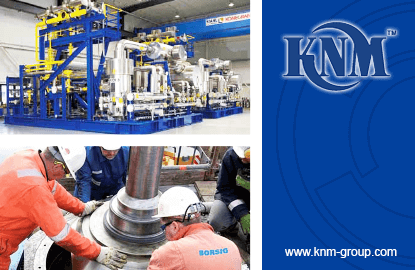
This article first appeared in The Edge Financial Daily, on June 17, 2016.
KUALA LUMPUR: Downstream oil and gas player KNM Group Bhd said it is focusing on improving its income base to generate more recurrent revenue amid an uncertain global economic environment.
Its chief executive officer Lee Swee Eng said the group, which currently derives the entirety of its income from contracted works, expects to see up to 15% of its top line to be contributed by recurrent income for the financial year ending Dec 31, 2017 (FY17).
“Traditionally, KNM has gotten its revenue from contracting works. We are now embarking on more recurring income projects, such as biofuel and waste-to-energy. This will change our revenue landscape going forward.
“By the end of this year, our bioethanol plant in Thailand will start production, so we should have recurrent income from that project. We are looking at [a] 10% to 15% full-year contribution in 2017, in terms of recurring income.
“We will start earning some recurring income starting from the fourth quarter of this year. Hopefully by 2018, when the waste-to-energy project is ready, we will have a 50:50 ratio of contribution from recurring income and contracting works,” Lee said at a press conference, following the group’s annual general meeting yesterday.
The group commenced works for Phase 1 of its 80mw waste-to-energy plant in Peterborough, Britain, back in October last year. The first phase will have a total capacity of 18mw.
“We are still doing what we’re good at — our core business — but our business model has changed. While we still have the same core business, we are also stepping up our role as a project owner and project developer. This will provide additional recurring income over the longer term,” said Lee.
For the current financial year (FY16), he expects the group to match its performance in FY15, riding on its existing long-term contracts.
For FY15, KNM reported a net profit of RM47.9 million, up 21% from RM39.75 million in the previous year, while revenue fell 12% to RM1.64 billion from RM1.86 billion.
Asked if lower crude oil prices have had an impact on the group’s performance, Lee said there was a minimal impact on the downstream segment.
“We are actually not impacted by the price of oil because the downstream projects, like petrochemical projects, are more attractive due to cheaper feedstock,” he explained.
Meanwhile, on the impact of Britain’s potential exit from the European Union (EU), Lee said if Brexit happens, the group’s waste-to-energy project could see better profitability.
“The impact of a Brexit on us could be positive. We are producing power for the local population; we sell to the local domestic grid. In the case that the UK leaves the EU, the country will have to be more independent.
“There could be more pressure on the UK to produce its own power. Logically, demand for our power will become stronger,” he said.
Besides that, he pointed out that nearly 50% of the waste in Britain had been exported to EU countries, after the country discontinued the usage of landfills in 2013.
“There’s an excess of waste in the UK. Currently, they are enjoying the common tax when exporting their waste to EU countries, but if they leave, there would be some tax imposed on the UK, so we could get a higher premium on waste collection fees.
“So if Brexit happens, we can get better tariffs and gate fees from waste collection as well, which means that the project would be more profitable for us,” he said.